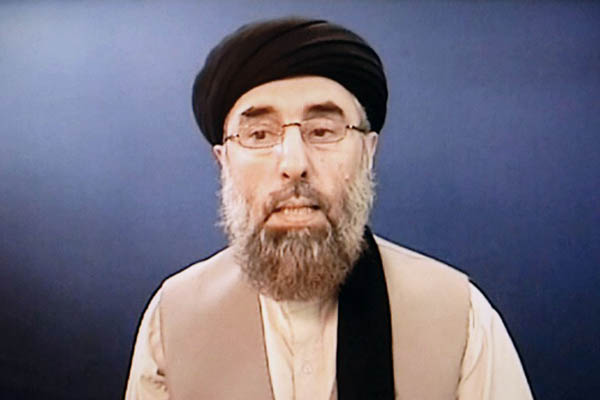
Gulbuddin Hekmaytar. AFP
Kabul’s normalizing of the ‘butcher’ warlord is unlikely to win it any in-roads with the Taliban.
Last September, Kabul inked a peace agreement with Hezb-e-Islami warlord Gulbuddin Hekmatyar, paving the way for his political comeback. The U.N. backed this move by removing him from its terrorist blacklist. The ‘butcher of Kabul’ and his men—who once bombed Kabul till it looked like a graveyard—are now guaranteed resettlement in areas of their choosing. Afghan officials have claimed Hekmatyar will help them bring the Taliban to the negotiating table; this is unlikely. The Taliban, whose insurgency is once again on an upswing, have no love for Hekmatyar and will hardly be impressed by the Hezb-i-Islami joining President Ashraf Ghani’s effort to weaken them.
However, this is nothing new for Kabul. Despite loudly proclaiming last year that Afghanistan has no plans to revive peace talks with the Taliban, and accusing Pakistan of not acting against militants, the Afghan government has a history of welcoming warlords into its fold. Prior to the ‘normalizing’ of Hekmatyar, “butcher” warlord Abdul Rashid Dostum was appointed vice-president of the country. President Ghani has no compunctions about sleeping with warlords in the pursuit of so-called peace—a losing proposition as a new U.N. report has revealed that militants have claimed a record number of casualties in the past year. The country’s problems don’t end there.
Pashtun President Ghani and Tajik Chief Executive Abdullah Abdullah can’t get along and, according to the latter, have not even met for three months. Abdullah was determined to reject the last elections, widely believed to be rigged, but was convinced to play along by the U.S. His staff is mostly comprised of his own ethnicity and has its hackles up at the entry of Pakhtun Hekmatyar into Afghanistan’s political sphere.
Pakistan alienated Afghanistan’s Tajik community early on when it chose to support Pashtuns after the 1979 Soviet invasion and favored Hekmatyar instead of his archenemy, the Tajik Ahmad Shah Massoud, who used to live in Peshawar. In the Afghan civil war of the 1990s, Hekmatyar was the main rival of Abdullah Abdullah’s Northern Alliance.
Pakistan’s past mollycoddling of Hekmatyar—from which it got no returns—offended both the Tajiks and the Taliban. Now President Ghani has brought him into the mainstream without making any headway with the parties that really matter: the Northern Alliance in Afghanistan and Pakistan across the border.
